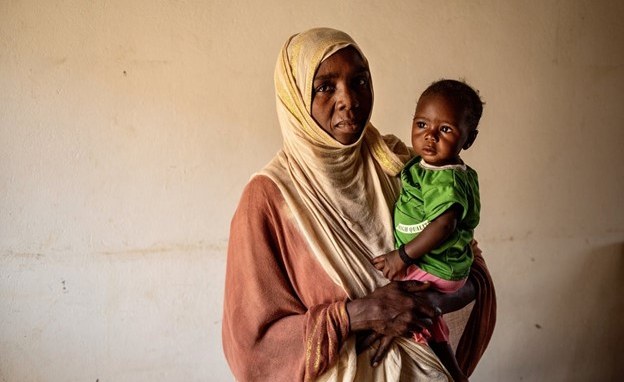Geneva — Today marks one year since conflict between rival military leaders broke out in Sudan. Many Sudanese have fled across the border into Chad, including those from Darfur – where news organizations and aid agencies are warning of a return to the widespread genocide and mass rapes in Darfur that began in 2003. On Friday, the BBC’s Barbara Plett-Usher [@BBCBarbaraPlett] reported from northern Darfur that among those who fled their homes, a child is dying every two minutes. This guest column by Dr. Tedros Adhanom Ghebreyesus, Director-General of the World Health Organization, warns that time to avert a worse catastrophe across Sudan is running out.
Away from the headlines and the international community’s attention, Sudan’s people are experiencing a devastating humanitarian crisis.
Half of the country’s 50 million people urgently need humanitarian assistance. Over 8.6 million people are displaced within Sudan and in neighbouring countries – the world’s worst displacement crisis.
Many have been forced to flee multiple times, leaving 18 million people with acute food insecurity. One in seven children is acutely malnourished. Five million are on the brink of famine [a technical term measuring thresholds of starvation, malnutrition and deaths].
Feuding armies are restricting aid, but without assistance, the situation will continue to worsen.
On top of this, the health system is collapsing, especially in hard-to-reach areas, with health facilities destroyed, looted or struggling with acute shortages of staff, medicines, vaccines, equipment and supplies. Only some 30 percent of health facilities are still functioning, and those operate at minimal levels. Medical supplies in the country are estimated at about 25 percent of what is needed. Some states, such as Darfur, have not received any medical supplies for the past year.
Darfur and some other areas have received no medical supplies for a year.
This means that in many areas pregnant women and new-born babies are not getting care; there is no vaccination for children; and patients suffering from diabetes, hypertension, cancer or kidney failure are at risk of severe complications or even death from the lack of medication.
There’s still time to avert the worst outcome and protect the lives and health of Sudan’s people.
Throughout this crisis, WHO and partners have been on the ground. WHO has reached close to 2.5 million people through direct support to services and delivery of emergency supplies. Mobile clinics have treated 433,000 Sudanese refugees in eastern Chad. Overall, 3.3 million people have received care in mobile clinics.
In the past few months, WHO and partners’ efforts have resulted in a decline in the number of cases of cholera, dengue, and malaria. In six high-risk states. 4.5 million people over one year of age received the oral cholera vaccine, and 5.7 million people in seven states were vaccinated against measles and rubella. We have delivered supplies for the treatment of 115, 000 children suffering from severe acute malnutrition with medical complications.

Sign up for free AllAfrica Newsletters
Get the latest in African news delivered straight to your inbox
Still, much more is needed to save lives and protect people’s health.
Today’s conference for Sudan and its neighbouring countries should consider three priorities:
First: We need humanitarian access across borders, and humanitarian corridors, especially in areas not controlled by the government. Access through the Adre crossing with Chad is vital.
Second: We call on all parties to respect international humanitarian law and human rights law and stop attacks on health. There have been over 60 attacks on health facilities in the past year. Health workers, patients, hospitals and other facilities must never be targets.
The health sector has lass than 12 percent of the funding it needs.
Third: We are ready to scale operations higher but cannot do so without more support from donors. The health sector has less than 12 percent of the funding it needs.
Time is running out. Without a stop to the fighting and unhindered access for the delivery of humanitarian aid, Sudan’s crisis will dramatically worsen in the months to come, with implications for a large region.
Source : AllAfrica


